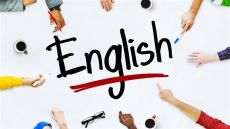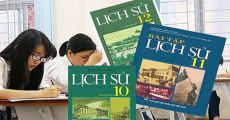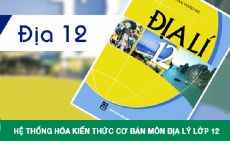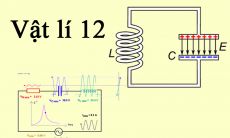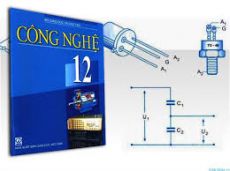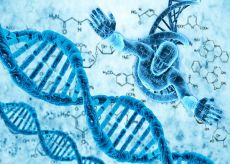Đề thi thử THPT QG năm 2021 môn Tiếng Anh
Trường THPT Hòa Bình Lần 2
-
Câu 1:
Indicate the word whose underlined part differs from the other three in pronunciation: climate, examine, invitation, interview
A. climate
B. examine
C. invitation
D. interview
-
Câu 2:
Indicate the word whose underlined part differs from the other three in pronunciation: society, geography, dry, sandy
A. society
B. geography
C. dry
D. sandy
-
Câu 3:
Indicate the word that differs from the rest in the position of the main stress: dismiss, destroy, display, district
A. dismiss
B. destroy
C. display
D. district
-
Câu 4:
Indicate the word that differs from the rest in the position of the main stress: entertain, candidate, referee, afternoon
A. entertain
B. candidate
C. referee
D. afternoon
-
Mark the letter A, B, C or D on your answer sheet to indicate the correct answer to each of the following questions.
Câu 5:
When Bill got home, his children_____________in the yard.
A. will be playing
B. were playing
C. are playing
D. played
-
Câu 6:
Did you manage_____________the book you were looking for?
A. to find
B. found
C. finding
D. find
-
Câu 7:
That cannot be a true story. He_____________it up.
A. must have made
B. should have made
C. would have made
D. can have made
-
Câu 8:
Beethovens Fifth Symphony_____________next weekend.
A. is going to be performed
B. has been performed
C. will be performing
D. will have performed
-
Câu 9:
She said that when she_____________to school, she saw an accident.
A. had been walking
B. has walked
C. was walking
D. has been walking
-
Câu 10:
She wanted Tom, _____________she liked, as a partner, but she got Jack, ...............she didn’t like.
A. whom/ whose
B. whose/ whom
C. whose/ whose
D. whom/ whom
-
Câu 11:
Scarcely_____________out of bed when_____________
A. had I got/ did the doorbell ring
B. had I got/ the doorbell rang
C. I had got/ did the doorbell ring
D. I had got/ the doorbell rang
-
Câu 12:
I think he will join us, _____________?
A. won’t he
B. don’t I
C. will not he
D. do not I
-
Câu 13:
For more than 10 years, we have seen the significant_____________in the economy of our country.
A. develop
B. developments
C. developers
D. developed
-
Câu 14:
The_____________load for this car is one ton.
A. top
B. max
C. peak
D. height
-
Câu 15:
Most modern office_____________includes facsimile machines, photocopiers and telephone systems.
A. device
B. tool
C. equipment
D. instrument
-
Câu 16:
I just took it_____________that he’d always be on time.
A. into consideration
B. easy
C. into account
D. for granted
-
Câu 17:
That’s exactly what I mean, Tom. You’ve_____________!
A. put your foot in it
B. killed two birds with one stone
C. put two and two together
D. hit the nail on the head
-
Câu 18:
My car is getting unreliable. I think I’ll trade it_____________for a new one.
A. off
B. away
C. in
D. up
-
Mark the letter A, B, C, orD on your answer sheet to indicate the underlined part that needs correction in each of the following questions.
Câu 19:
I visited Mexico and United States last year.
A. visited
B. Mexico
C. United States
D. last year
-
Câu 20:
Yesterday he said he regretted not to have gone to the exhibition last week.
A. yesterday
B. said
C. regretted
D. not to have gone
-
Câu 21:
Minh’s mother would sooner not to meet her friend in person than phone her.
A. sooner
B. not to meet
C. in person
D. than
-
Mark the letter A, B, C or D on your answer sheet to indicate the sentence that is closest in meaning to each of the following questions.
Câu 22:
Friendly though he may seem, he’s not to he trusted.
A. He’s too friendly to be trusted.
B. However he seems friendly, he’s not to be trusted.
C. He may have friends, but he’s not to be trusted.
D. However friendly he seems, he’s not to be trusted.
-
Câu 23:
The last time I saw her was three years ago.
A. I have not seen her for three years.
B. About three years ago, I used to meet her.
C. I have often seen her for the last three years.
D. I saw her three years ago and will never meet her
-
Câu 24:
Calling Odyse is pointless because his phone is out of order.
A. It’s worth not calling Odyse since his phone is out of order.
B. It’s no use to call Odyse since his phone is out of order.
C. It’s useless call Odyse as his phone is out of order.
D. There is no point in calling odyse as his phone is out of order.
-
Mark the letter A, B, C or D on your answer sheet to indicate the sentence that best combines each pair of sentences in the following questions.
Câu 25:
Randy doesn’t play rugby. Neither does Lucy.
A. Neither Randy nor Lucy doesn’t play rugby.
B. Neither Randy nor Lucy play rugby.
C. Neither Randy nor Lucy plays rugby.
D. Either Randy or Lucy plays rugby.
-
Câu 26:
Nguyen Huu Kim Son broke the SEA Games record in the men’s 400-metre individual medley event. He is very proud of it.
A. He is very proud of what he broke the SEA Games record.
B. He takes pride in breaking the SEA Games record.
C. He is interested in the SEA Games record.
D. He is very proud of he broke the SEA Games record.
-
Mark the letter A, B, C or D on your answer sheet to indicate the most suitable response to complete each of the following exchanges.
Câu 27:
This situation happened in a restaurant
- Customer: “Excuse me!”
- Waiter: “Yes, sir. How can I help you?”
- Customer: “I don’t want to make a scene but there’s a fly in my soup.”
- Waiter: “_____________”
A. I’m so sorry! I will get you another one.
B. What can I do to help?
C. You are right. I will get you another one.
D. You could be right but I don’t think it is a fly.
-
Câu 28:
Alice and Mary have just finished watching a movie.
- Alice: “Endgame is such a wonderful movie”
- Mary: “_____________”
A. I couldn’t agree more.
B. I don’t like your saying.
C. I didn’t say anything.
D. I’m a huge fan of Marvel.
-
Mark the letter A, B, C, or D on your answer sheet to indicate the word or phrase that is CLOSEST in meaning to the underlined part in each of the following questions.
Câu 29:
One of the biggest issues that many victims of negligent behavior encounter is difficulty in determining whether or not an action had foreseeable consequences.
A. predictable
B. unpredictable
C. ascertainable
D. computable
-
Câu 30:
We’re really close friends but we just cannot see eye to eye on politics.
A. not see well
B. not share the same views about
C. not understand
D. not care for
-
Mark the letter A, B, C, or D on your answer sheet to indicate the word or phrase that is OPPOSITE in meaning to the underlined part in each of the following questions.
Câu 31:
The research findings were reliable since modern technology was used to increase the precision of the sampling procedure.
A. inaccuracy
B. exactness
C. insecurity
D. flexibility
-
Câu 32:
Despite the traffic hold-ups, we were able to arrive at the airport in the nick of the time just before the check-in counter closed.
A. in a terrible condition
B. with all out luggage
C. at the very last moment
D. with much time to spare
-
Read the following passage and mark the letter A, B, C or D on your answer sheet to indicate the correct word for each of the blanks from 33 to 37.
The knock-on effect of volunteering on the lives of individuals can be profound. Voluntary work helps foster independence and imparts the ability to deal with different situations, often simultaneously, thus teaching people how to (33) _____________their way through different systems. It therefore brings people into touch with the real world; and, hence, equips them for the future.
Initially, young adults in their late teens might not seem to have the expertise or knowledge to impart to others that say a teacher or agriculturalist or nurse would have, (34) _____________they do have many skills that can help others. And in the absence of any particular talent, their energy and enthusiasm can be harnessed for the benefit of their fellow human beings, and ultimately themselves. From (35) _____________this, the gain to any community no matter how many volunteers are involved is (36) _____________.
Employers will generally look favorably on people (37) _____________have shown an ability to work as part of a team. It demonstrates a willingness to learn and an independent spirit, which would be desirable qualities in any employee.
Câu 33:
(33)................
A. give
B. work
C. put
D. take
-
Câu 34:
(34).................
A. so
B. but
C. or
D. for
-
Câu 35:
(35)....................
A. all
B. none
C. above
D. both
-
Câu 36:
(36)................
A. unattainable
B. immeasurable
C. undetectable
D. impassible
-
Câu 37:
(37)....................
A. which
B. whose
C. who
D. what
-
Read the following passage and mark the letter A, B, C, or D on your answer sheet to indicate the correct answer to each of the questions from 38 to 42.
Insects’ lives are very short and they have many enemies, but they must survive long enough to breed and perpetuate their kind. The less insect-like they look, the better their chance of survival. To look "inedible" by imitating plants is a way frequently used by insects to survive. Mammals rarely imitate plants, but many fish and invertebrates do.
The stick caterpillar is well named. It is hardly distinguishable from a brown or green twig. This caterpillar is quite common and can be found almost anywhere in North America. It is also called "measuring worm" or "inchworm." It walks by arching its body, then stretching out and grasping the branch with its front feet then looping its body again to bring the hind fed forward, when danger threatens, the stick caterpillar stretches its body away from the branch at an angle and remains rigid and still, like a twig, until the danger has passed.
Walking sticks, or stick insects, do not have to assume a rigid, twig-like pose to find protection: they look like inedible twigs in any position. There are many kinds of walking sticks, ranging in size from the few inches of the North American variety to some tropical species that may be over a foot long, when at rest their front legs are stretched out, heightening their camouflage. Some of the tropical species are adorned with spines or ridges, imitating the thorny bushes or trees in which they live.
Leaves also seem to be a favorite object for insects to imitate. Many butterflies can suddenly disappear from view by folding their wings and sitting quietly among the plants that they resemble.
Câu 38:
What is the main idea of the passage?
A. Caterpillars that live in trees
B. The feeding habits of insects
C. How some insects imitate plants to survive
D. Insects that are threatened with extinction
-
Câu 39:
Which of the following does the word “enemies” in line 1 refer to?
A. plants looking like insects
B. extreme weather conditions
C. creatures that eat insects
D. insects looking like plants
-
Câu 40:
According to the passage, how does a stick caterpillar make itself look like a twig?
A. By holding its body stiff and motionless
B. By looping itself around a stick
C. By changing the colour of its skin
D. By laying its body flat against a branch
-
Câu 41:
Which of the following is the antonym of the word “inedible” in paragraph 3?
A. eatable
B. colourful
C. beautiful
D. moving
-
Câu 42:
How can butterflies make themselves invisible?
A. By hiding under the leaves
B. By disappearing from the view
C. By folding wings and sitting still among the leaves with similar colours
D. By flying among colourful flowers
-
Read the following passage and mark the letter A, B, C, or D on your answer sheet to indicate the correct answer to each of the questions from 43 to 50.
There are two basic types of glaciers, those that flow outward in all directions with little regard for any underlying terrain and those that are confined by terrain to a particular path.
The first category of glaciers includes those massive blankets that cover whole continents, appropriately called ice sheets. There must be over 50,000 square kilometers of land covered with ice for the glacier to qualify as an ice sheet, when portions of an ice sheet spread out over the ocean, they form ice shelves.
About 20,000 years ago the Cordilleran Ice sheet covered nearly all the mountains in southern Alaska, western Canada, and the western United States. It was about 3 kilometers deep at its thickest point in northern Alberta. Now there are only two sheets left on Earth, those covering Greenland and Antarctica.
Any domelike body of ice that also flows out in all directions but covers less than 50,000 square kilometers is called an ice cap. Although ice caps are rare nowadays, there are a number in northeastern Canada, on Baffin Island, and on the Queen Elizabeth Islands.
The second category of glaciers includes those of a variety of shapes and sizes generally called mountain or alpine glaciers. Mountain glaciers are typically identified by the landform that controls their flow. One form of mountain glacier that resembles an ice cap in that it flows outward in several directions is called an ice field. The difference between an ice field and an ice cap is subtle. Essentially, the flow of an ice field is somewhat controlled by surrounding terrain and thus does not have the domelike shape of a cap. There are several ice fields in the Wrangell. St. Elias, and Chugach mountains of Alaska and northern British Columbia.
Less spectacular than large ice fields are the most common types of mountain glaciers: the cirque and valley glaciers. Cirque glaciers are found in depressions in the surface of the land and have a characteristic circular shape. The ice of valley glaciers, bound by terrain, flows down valleys, curves around their corners, and falls over cliffs.
Câu 43:
What does the passage mainly discuss?
A. Where major glaciers are located
B. How glaciers shape the land
C. The different kinds of glaciers
D. How glaciers are formed
-
Câu 44:
The word “terrain” in paragraph 1 could best be replaced by____________.
A. the seabed
B. area of land
C. countryside
D. prairie
-
Câu 45:
It can be inferred from paragraph 2 that ice sheets are so named because____________
A. they are thicker in some areas than the others
B. they are identified by the landform that controls their flow
C. they cover large areas of land
D. they are confined to cirque glaciers
-
Câu 46:
According to the passage, where was the Cordilleran Ice Sheet thickest?
A. Alaska
B. Antarctica
C. Greenland
D. Alberta
-
Câu 47:
According to paragraph 5, ice fields resemble ice caps in which of the following ways?
A. Their flow
B. Their texture
C. Their location
D. Their shape
-
Câu 48:
The word “subtle” in paragraph 5 could best be replaced by____________.
A. slight
B. substantial
C. regional
D. obvious
-
Câu 49:
The word “their” in last paragraph refers to____________.
A. ice fields
B. cirque glaciers
C. valley glaciers
D. valleys
-
Câu 50:
All of the following are alpine glaciers EXCEPT____________.
A. cirque glaciers
B. ice caps
C. ice fields
D. valley glaciers




